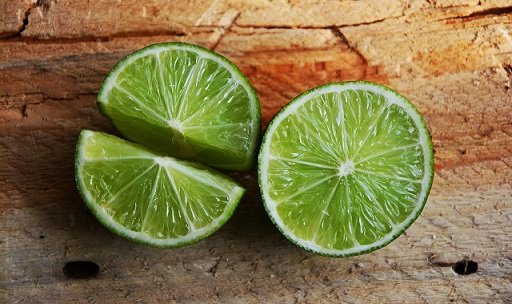If you are a regular gardener and love planting a range of plants and trees you’ll probably know that not all are safe for pets. For people who have dogs and love lemon trees, there is a question regarding their safety.
Nothing will happen if your dog licks a lime. However, lemon tree leaves and lemon/lime peels are poisonous to dogs. This is due to the presence of toxic oils in the foliage.
Are Lemon Tree Leaves Poisonous to Dogs?
Yes, lemon tree leaves can be poisonous to dogs. This is because the leaves as well as other parts have certain toxins. Whether lemon and lime leaves are poisonous to dogs depends upon how much they consume.
Both lemon and lime tree leaves can be poisonous to dogs in certain quantities. In high amounts, lemon/lime leaves, as well as lemon/lime fruits, would show some harmful effects.
Also, in small doses, these substances could still display gastrointestinal (GI) tract problems. This usually comes forth as diarrhea and vomiting and this is the less serious spectrum when your dog hasn’t consumed too much.
Either way, lemons, and lemon leaves have the potential to affect your dog’s health and wellbeing when consumed.
Check out How Do I Get Rid of Ants on Lemon Tree?
What Makes Lemon Tree Leaves Poisonous to Dogs?
Just finding out your lemon or lime tree is not so safe for your dog? This news will automatically prompt you to wonder why it isn’t safe for dogs?
Lemon and limes share a few toxins in their fruit peels and foliage. They have three toxins; psoralens, limonene, and linalool.
Although these substances are useful in the medical, cosmetic, and perfume industries, their consumption is prohibited. If your dog consumes these compounds, a range of ill effects may very well follow.
Limonene
This is a typical substance that is found in the peels of lemons as well as all other citrus fruits. It is commonly used as a flavoring in gums, food, and beverages. It is also used in medicine but has not been proven to actually be effective.
Dogs that consume too much of this compound may affect the liver causing liver damage and in extreme cases liver failure.
Linalool
The substance Linalool is a terpene alcohol that occurs naturally in a range of plants, lemons and limes being a part of them.
Linalool is popular for its cool touch and scent. For this reason, this compound is widely used in detergents, soaps, fragrances, and even insecticides.
Linalool also has harmful effects when inhaled as an aerosol or through the skin. Side effects include pain, inflammation, and irritation of the skin. A number of people are found to be allergic to the oxidized form of the compound linalool.
In dogs, high concentrations of linalool in the liver lead to damage and failure. Also, a note of caution is that puppies are more vulnerable to the substance than older dogs.
Psoralen
Also known as psoralene, this compound finds much use in the medical sector. Particularly for the treatments of psoriasis and to a lesser extent, eczema and vitiligo.
But, it is also dangerous to humans, increasing the risk of skin cancer and other skin-related diseases.
This evidently sounds like a substance you would want to keep away from your pet dog! Psoralen can induce eye and skin photosensitivity in dogs.
Signs and Symptoms of Lemon Poisoning in Dogs
So what can you expect if you have a few lemon or lime trees in the garden and an untrained dog who eats everything? Well, the signs and symptoms usually become severe when large amounts of lemon and leaves are devoured.
But, smaller dogs with less body weight may be affected sooner than dogs with higher body weight. To keep your dog safe, stay informed about the possible signs and symptoms of dogs who consume lemon peels or leaves.
Here are the signs and symptoms of lemon poisoning in dogs:
- Cold limbs
- Collapse
- Diarrhea
- Severe drooling
- Lethargy
- Low blood pressure
- Photosensitivity
- Skin conditions (rashes and irritation)
- Tremors and unsteadiness
- Vomiting
- Weakness
With winter approaching, Check to see if lemon trees survive winter.
How to Treat a Dog With Lemon and Lime Poisoning?
As you know by now, the oils present in lemon and lime peels and leaves can be of harm to animals, particularly dogs. If by misfortune your dog eats these items what should you do? This is a common question that any cautious dog owner would ask.
If your dog starts to show any of the typical symptoms and there is evidence of a lemon/lime or their leaves it is very likely it is lemon poisoning. If so, administer treatment immediately to avoid severe adverse health effects.
Here are a few steps to take if you suspect your dog has come in contact with lemon/lime peels or lemon tree leaves.
- Observe and note down the symptoms.
- If your dog is showing signs of skin irritation, wash off the area with water.
- A bit of vomiting and diarrhea may be common in these cases. But if a vet is necessary, he will probably ask you for more details pertaining to the frequency of this gastrointestinal upset.
- If diarrhea and vomiting do not manage to eliminate whatever your dog has eaten then you should definitely consult a vet.
- The vet may choose to perform gastric irrigation. This involves removing the stomach contents with a suction tube. This stops the toxin from being further absorbed.
- After this, your vet may prescribe charcoal medications to absorb any remaining toxins.
How to Prevent Lemon Poisoning in Dogs?
It might seem hard to keep your dog away from a lemon or lime tree. But it’s not hard if you do it right the first time. There are a number of ways to keep your dog from eating enough lemon leaves or lemon peel to compromise their health.
- Train your dog to keep away and not eat from your lemon/lime tree. You can do so by verbally dissuading him from biting that tree. If he obeys, reward him with an edible treat. He will slowly catch the hint.
- Alternatively, if you just have that one small lemon tree, you can try to fence off the area. This will prevent your dog from getting near enough to consume any part of the tree.
- Let them taste a lemon fruit. Most often than not it is a case of curiosity that drives a dog to taste something. So, let him taste the lemon fruit from the get-go. Dogs don’t find lemons/limes appetizing and will then link the lemon tree smell to the sour fruits!
- If your dog stays outdoors or has limited access to indoor areas, placing your lemon tree in a prohibited area is an option.
Conclusion
Nothing much will happen if your dog licks a lime. But if it eats the peel of a lemon or lime and the leaves, serious health issues could follow.
The peels of lemons and limes as well as the leaves have three toxic compounds. They are Limonene, Linalool, and Psoralen.
The most common symptoms of mild lemon poisoning are diarrhea and vomiting. More severe symptoms are weakness, low blood pressure, and even death!
Prevent your dog from eating lemon/lime peels and leaves by training it, keeping it away from the tree, and inhibiting access to such products. This way you can keep your pet safe and still yield lemons from your tree.
Wondering what else dogs can eat? Read, Can dogs eat mint leaves?
FAQs
Yes. Meyer lemon trees are still lemons and contain the three toxins that regular lemon and lime fruit peels and leaves contain.
Dogs are not really into citrus fruits as they are considered too tart. This isn’t bad news as the peels and leaves of all citrus trees have three toxins. Their names are Limonene, Linalool, and Psoralen. They can have adverse effects on your dog if he consumes enough of them.

